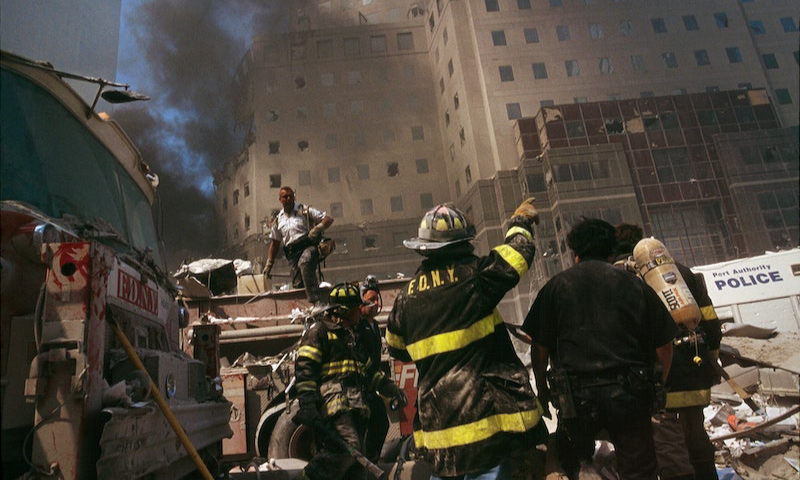Alexander Riley
The American Mind, Sept. 9, 2022
“In the moment of the country’s greatest tragedy in at least a half century, they leapt up not to defend but to denounce it. Twenty-one years later, the divide has only widened and deepened.”
I have written a lot about the terrorist attacks of September 11, 2001 over the years, including a book on United Flight 93, which went down a few hours from my home in central Pennsylvania. In much of that work, I argued for the importance of that day not only in its human and material cost but also in what it represented as a contribution to the American civil religion. Core aspects of traditional American national identity—masculine heroism, a democratic citizenry prepared to stand in its defense, the deeply spiritual values that were present at the country’s origin—were displayed that day. I believed our collective memory of the response to terror by our heroic co-citizens would be sustained in our culture and perhaps even point the way to a return to previous unity.
The truth is that the farther we get from the date, the more evident it becomes that unifying this country is likely an impossible mission. In fact, the commonly claimed temporary unity produced in the wake of the attacks was itself, alas, illusory. It was not even fleeting. It was never real. The massive rift in this country, only too apparent now, was already visible then, but I and many others hoped our collective response to this national tragedy could bind up those old wounds and move us toward healing our broken culture.
When the planes hit the buildings that September day, I was just at the start of my second year as an assistant professor at a liberal arts college in central Pennsylvania. In my first year, I had already learned a good deal about how things operated in environments like this one. I had come from a big research university, where it was relatively easy to get lost in the bureaucratic immensity of the place and fail to see the low-level cultural features of contemporary academic life that are unavoidable in smaller institutions. In my new job, I had quickly seen that some faculty, in my own department and elsewhere, were centrally motivated by ideological agendas and not anything remotely connected to the pursuit of Truth. They exercised considerable power over me, an untenured newcomer, at that point, and so I surveyed the landscape relatively silently, taking notes, observing. But I noticed, when I stopped into the school’s bookstore, that many of my colleagues were typically assigning books by advocates and activists rather than scholars. I heard from students some of what went on in other classrooms, and some of it was clearly directed not at teaching the Western canon but at undermining it. … SOURCE


